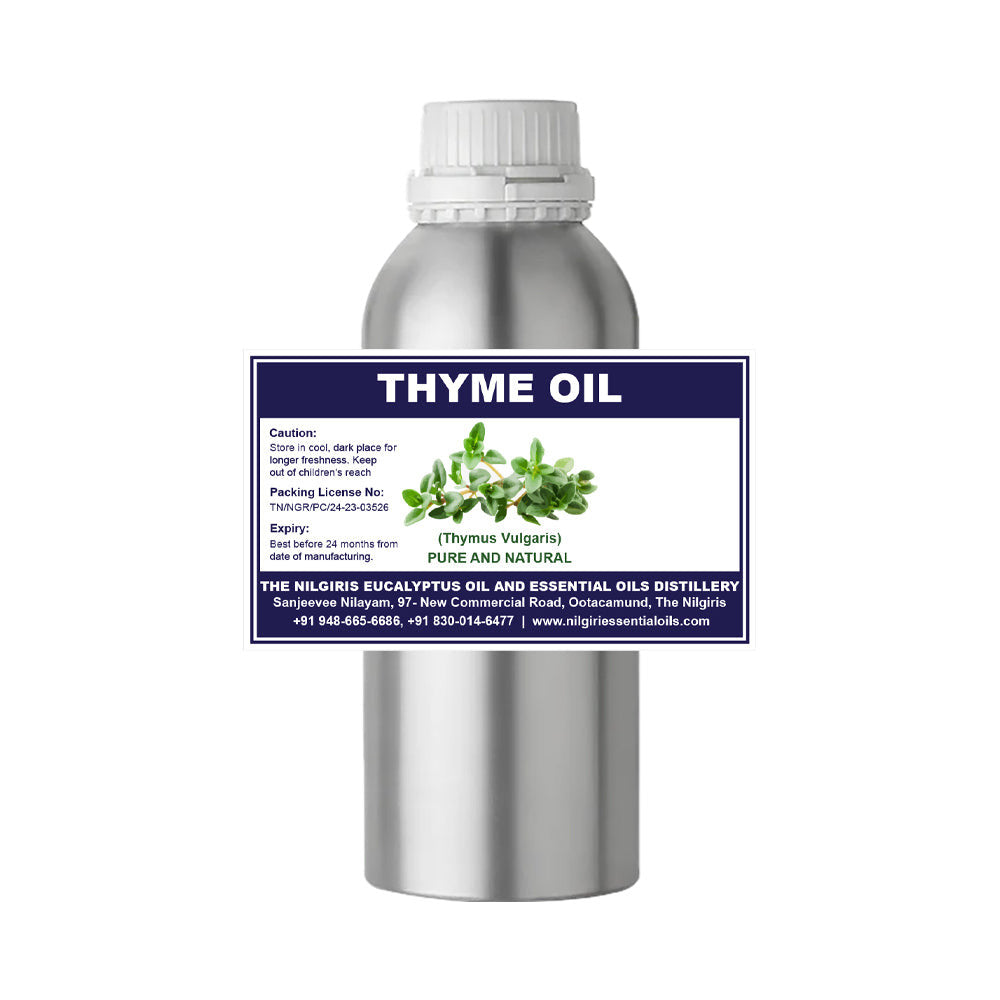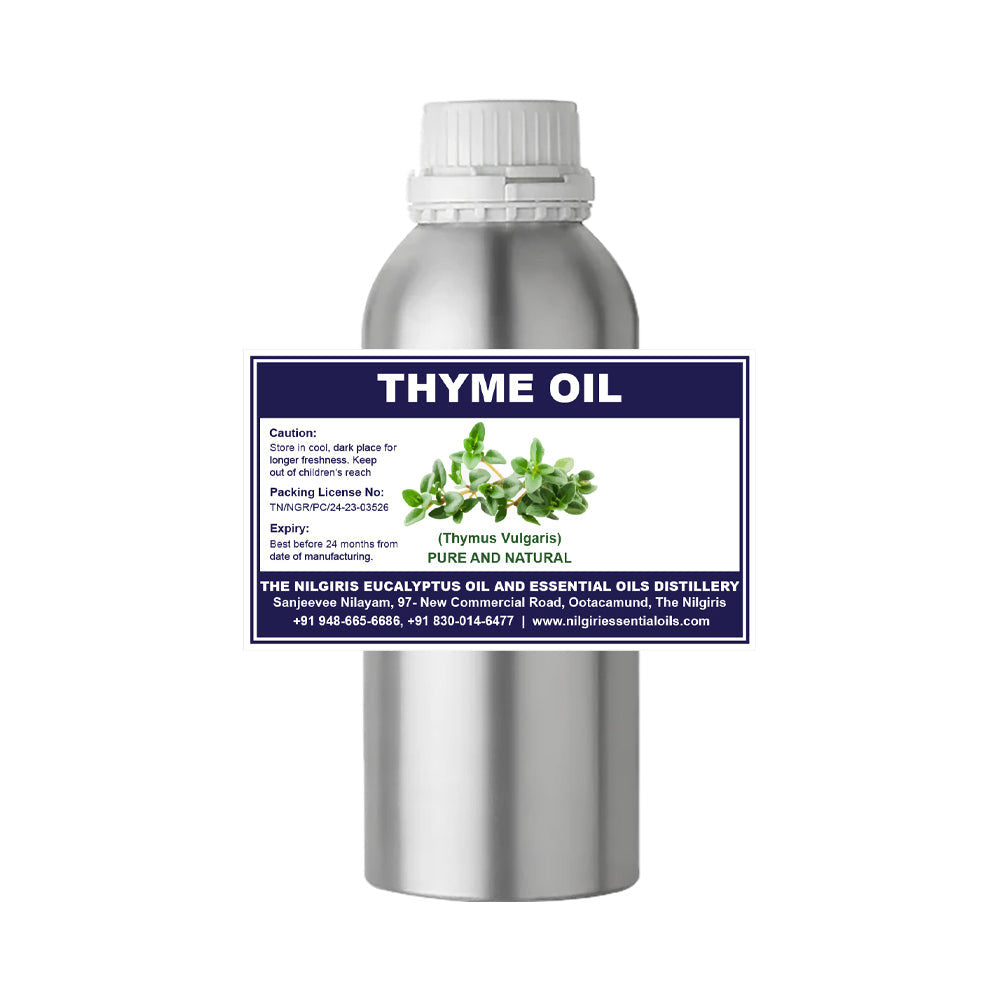Description
Thyme oil is an essential oil derived from the leaves and flowering tops of the Thymus vulgaris plant, a member of the mint family. It is obtained through steam distillation of the fresh or dried thyme plant, resulting in a pale yellow to reddish-brown oil with a warm, herbaceous, and slightly spicy aroma. Thyme oil has been used for centuries for its medicinal and culinary properties, and it is valued for its antimicrobial, antiseptic, and antioxidant properties.
Benefits:
-
Antimicrobial Properties: Thyme oil is known for its potent antimicrobial properties, making it effective against bacteria, viruses, and fungi. It can help kill harmful pathogens on the skin, in the mouth, and in the air, reducing the risk of infections and supporting immune health.
-
Respiratory Support: Thyme oil has expectorant and decongestant properties that help relieve respiratory congestion and promote clear breathing. It can help alleviate symptoms of coughs, colds, sinusitis, bronchitis, and asthma by loosening mucus and opening the airways.
-
Antioxidant Protection: Thyme oil is rich in antioxidants, including thymol, carvacrol, and rosmarinic acid, which help protect cells from oxidative damage caused by free radicals. These antioxidants help reduce inflammation, support cardiovascular health, and prevent premature aging.
-
Digestive Aid: Thyme oil can aid digestion and relieve gastrointestinal discomfort. It helps stimulate the production of digestive enzymes and bile, facilitating the digestion and absorption of nutrients. Thyme oil may also help alleviate symptoms of indigestion, bloating, gas, and stomach cramps.
-
Skin Care: Thyme oil has antiseptic and astringent properties that make it beneficial for skin health. It can help cleanse and purify the skin, reduce acne and blemishes, and soothe inflammation and irritation. Thyme oil is often used in skincare products such as cleansers, toners, and spot treatments.
How to Use:
-
Topical Application: Dilute thyme oil with a carrier oil such as coconut oil, olive oil, or sweet almond oil before applying it to the skin. Apply a small amount of diluted thyme oil to the affected area using a cotton swab or clean fingertips. Thyme oil can be used to treat acne, cuts, scrapes, insect bites, and fungal infections.
-
Steam Inhalation: Add a few drops of thyme oil to a bowl of hot water and inhale the steam to help relieve respiratory congestion and promote clear breathing. Cover your head with a towel and lean over the bowl, keeping your eyes closed, and inhale deeply for several minutes.
-
Massage Oil: Mix thyme oil with a carrier oil and use it for a stimulating and invigorating massage. Massage the oil onto the skin in gentle, circular motions to relieve muscle tension, promote relaxation, and improve circulation.
-
Oral Care: Add a drop of thyme oil to your toothpaste or mouthwash to help freshen breath, kill oral bacteria, and promote oral hygiene. Thyme oil can also be used as a natural mouthwash by diluting it with water and swishing it around the mouth for 30 seconds before spitting it out.
-
Aromatherapy: Add a few drops of thyme oil to a diffuser or aroma lamp and diffuse it in the air to purify and cleanse indoor air. Thyme oil has a warm, herbaceous aroma that can help uplift the mood, promote mental clarity, and create a sense of comfort and well-being.
Always perform a patch test before using any essential oils or carrier oils on your skin to check for any allergic reactions. Additionally, pregnant or nursing women and those with certain medical conditions should consult a healthcare professional before using essential oils and carrier oils.


